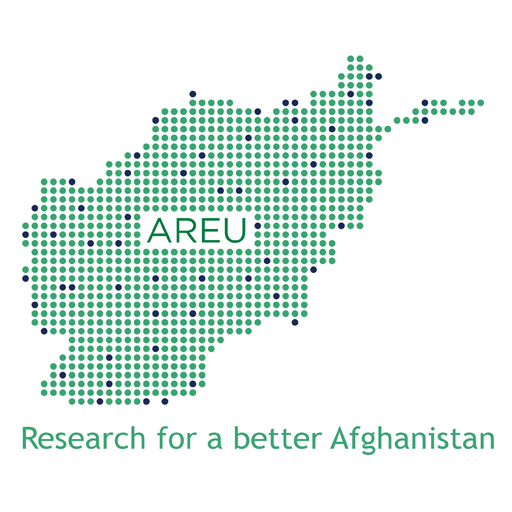
24 Apr Working Together
As members of AREU’s Legacies of Conflict research team, we have conducted field research in Kabul and Bamiyan Provinces, with a partnership organisation working in Ghazni. We enter communities for months at a time, conducting in-depth interviews with people about their experiences of the last 30 years of war. As you can imagine, sometimes these are terrible stories, painful for people to tell and painful for us to hear.
We’re a team of women and men from different ethnic groups: Pashtun, Hazara and Tajik. This was a deliberate strategy because the conflict in Afghanistan has often had ethnic dimensions, and so an ethnically-mixed research team was needed to be able to build trust and rapport in each of the areas where we wanted to conduct research. However, the presence of researchers from certain ethnic groups in a community has sometimes been the cause of suspicion initially, and we’ve had to work to overcome negative perceptions.
We have to be sensitive to the views of the communities we’re working in, but our behaviour and the way we work together sometimes indirectly challenges the views of those we are researching. We’ve even been told that the way we interact and the unity we represent has been inspiring, with some communities viewing it as an example of how men and women from different backgrounds can work together for one purpose in Afghanistan.
Just like in other social situations, when we arrive in a new community, first impressions count. In Afghanistan, ethnicity is one of the first things that people notice. This can become a problem when you consider what we ask people to talk about: the disappearance of family members, fleeing into the mountains while their homes burn, and men being lined up and shot. People even show us the mass graves where people are buried. When communities associate particular ethnic groups with such acts, and we have people from that ethnic group with us, it’s easy to see how sensitive the situation is.
For example, on our first morning in a rural village in Bamiyan Province, villagers told us about some of the terrible acts of violence that took place when the Taliban took control of the area. There, the locals are Hazara and the Taliban were seen as largely Pashtun. The locals strongly believe that the fighting had an ethnic dimension, with the Taliban targeting them particularly ruthlessly because they were Hazara. Until they met our Pashtun researcher, many villagers hadn’t seen a Pashtun person since the Taliban were in power, and some of the children had never encountered a Pashtun at all. At first people were a little distrustful of him, but he made a point of talking openly with the local men, and playing with the children, and people soon realised that he was there because he cared about them and what they’d been through.
Observing us carrying out our research, one woman remarked: “Some of the Pashtun came, killed us and destroyed our houses, but now another of them has come to record what happened.†This is how it started, and when our time ended there, one of the locals said that watching us all work together had really impressed them, particularly because we’re a diverse group. This might not seem like such a big deal in the larger cities, but particularly in isolated communities still struggling with legacies of conflict, our team can set a very positive example.
While this was a moment we were all proud of, it hasn’t always been so easy. To give just one example, one of our Hazara researchers had problems when meeting a prominent Pashtun Kuchi representative in Kabul. Initially the representative would not talk to or even shake hands with this member of our team, demanding to know more information about his background and status. Our researcher tried to explain himself, but ended up staying in the room only to make notes. However, at this point the representative switched languages, conducting the rest of the meeting in Pashto, and deliberately leaving our researcher totally unable to participate.
But ethnic difference does not necessarily mean animosity or social awkwardness—sometimes it can mean quite the opposite. On a previous research project, two female researchers, one Hazara and one Tajik, were interviewing a Pashto family about Community Based Dispute Resolution in the Jalalabad area. Aware that our Tajik researcher had Pashtun family members, they concentrated their energy—and their hospitality—on the Hazara. When asked why they had given her so much attention, the family replied that they wanted to be extra nice to her because she was Hazara and they wanted to make sure she had a good impression of Pashtun people. While their hospitality offensive definitely worked, it came at the cost of leaving the other researcher feeling a little left out!
Individually, we’ve each faced prejudice, criticism, and sometimes even exclusion in at least one of the communities where we’ve been working. While this is disheartening, it has taught us a lot about ourselves, and each other. As we’ve each encountered these problems, we’ve become more supportive of one another; aware that one member of the group might be struggling in this village, but also knowing that it could be any one of us in the next. Working in this contentious and often heartbreaking area means that we know more than most people about the crimes and pain caused by the past conflicts in Afghanistan. Equipped with this knowledge and personal experience of overcoming some of the divisions that have resulted from war in our country, we hope to do what we can to point the way toward a more united future for Afghanistan.

